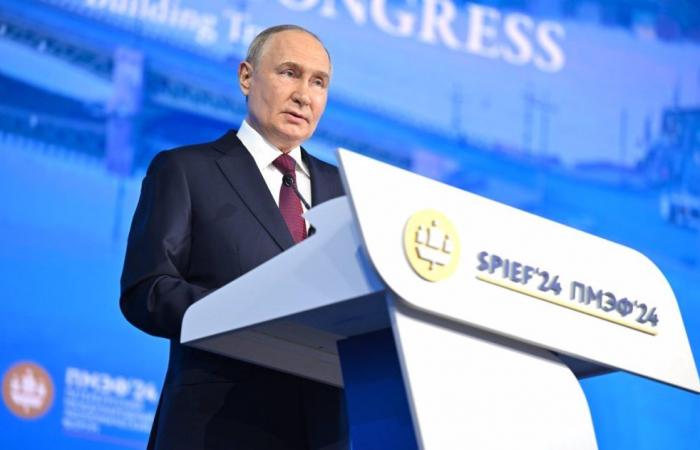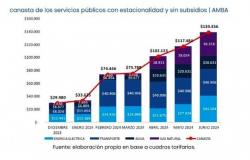
BRUSSELS, June 24 (EUROPA PRESS) –
The European Union adopted this Monday the 14th round of sanctions against Russia for the military invasion of Ukraine, in a round that punishes for the first time the Russian liquefied natural gas business and that will expand the measures underway to prevent the evasion of sanctions for by land, sea and air.
After more than two years of conflict in Ukraine, the EU takes the step of putting a stop to the liquefied natural gas business through measures against the ‘shadow fleet’ with which Russia takes this supply from the Arctic to European ports and then , by changing ships, transports it to Asia.
With this round, the EU will prohibit Russian natural gas refilling services in community territory for the purposes of transshipment operations to third countries, both ship-to-ship and ship-to-shore transhipments, although the measure does not affect imports for use in community territory; case of Spain, which has increased by 35% in 2023, making Russia the third gas supplier in the country, with 18%.
In any case, the European Commission will monitor the application and development of this decision and may propose palliative measures in the future if necessary.
Seeking to reinforce the sanctions and increase their operation in practice by avoiding circumvention of the measures, the 27 will force EU parent companies to strengthen the controls of their subsidiaries in third countries so that they do not participate in any activity that allows them to circumvent the sanctions.
Measures against the re-export of material that Russia can use on the battlefield are also reinforced. Now, EU operators will have to apply control mechanisms to identify and evaluate the risks of these operations with Russia.
Another measure to prevent Russian maneuvers to circumvent sanctions is to ban the financial message transfer system, SPFS, the system developed by the Central Bank of Russia to neutralize the effect of restrictive measures after it was removed. to Russian banks of the SWIFT system.
Thus, EU entities operating outside Russia will be prohibited from connecting to the SPFS or other equivalent specialized financial messaging services and EU operators are prohibited from carrying out transactions with certain Russian entities both in Russia and outside, although they will be excluded from the measure. payment for energy operations.
SANCTIONS ON 61 FOREIGN COMPANIES AND ON AIR, SEA AND ROAD TRANSPORTATION
In an attempt to respond to Russian actions, 61 companies are added to the European ‘blacklist’ of entities that support Russia’s military and industrial sector and will have stricter restrictions on the export of dual-use goods and technologies.
These entities include companies in both Russia, 33, China, 19, Kazakhstan, 1, Kyrgyzstan, 2, Turkey, 9, and the United Arab Emirates, 2, and India, 1, and are singled out by the EU for participating in the circumvention of trade restrictions and in the acquisition of parts that can be used to manufacture unmanned aircraft or material used by the Russian Army in Ukraine.
For the first time, the EU adopts concrete measures against thirty ships, identified as Russia’s ‘shadow fleet’ that supplies it with material used in the war of aggression against Ukraine, which will be denied access to ports and provision of services. services.
Among other reasons, the measures are justified by the transportation of military equipment for Russia, the transportation of stolen Ukrainian grain, and support for the development of Russia’s energy sector, for example through the transportation of liquefied natural gas components or gas transshipment.
Measures against road transport are also expanded, and the transport of goods by operators with Russian ownership will be prohibited by 25%. The ban on flying in the EU is extended and the veto from landing, taking off or flying over the territory of the EU is extended to any aircraft used for a non-scheduled flight, and when a Russian natural or legal person, entity or body is in conditions to effectively determine the place or time of takeoff or landing to go, for example, to a vacation destination or a business meeting.





